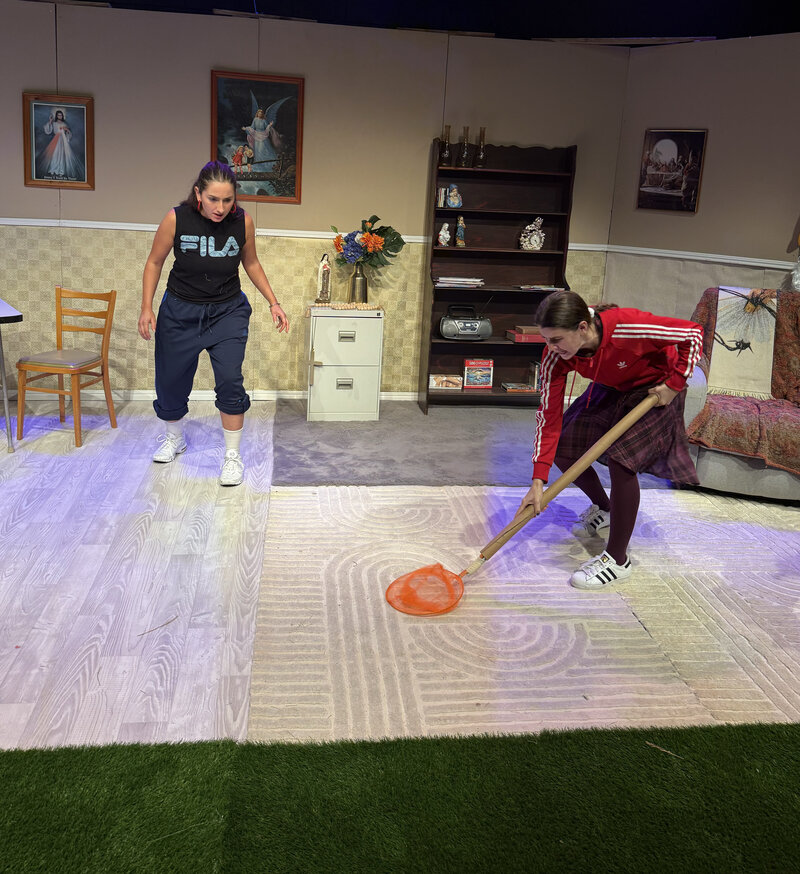Italian filmmaker Nanni Moretti (The Son’s Room) has often been compared to Woody Allen, although his films are a lot darker in tone and much more personal in nature. Mia Madre is a quiet, contemplative and introspective film that explores themes of mortality, loss, family, the death of a parent, emotional connections, the clash of cultures, and the disconnect between the personal and the professional.
 The central character here is Margherita (played by Margherita Buy), a film director who can be seen as a surrogate of Moretti himself. She is struggling on two fronts, professionally and personally as she undergoes something of an existential crisis. Her personal life is a bit of a mess – she has just split up with her husband Frederico and is struggling to connect with her own teenaged daughter Livia (Beatrice Mancini). Her ailing mother Ada (Giuliana Lazzarini), a former teacher, has been hospitalised and Margherita is forced to watch helplessly as her condition worsens and the doctors are unable to save her.
The central character here is Margherita (played by Margherita Buy), a film director who can be seen as a surrogate of Moretti himself. She is struggling on two fronts, professionally and personally as she undergoes something of an existential crisis. Her personal life is a bit of a mess – she has just split up with her husband Frederico and is struggling to connect with her own teenaged daughter Livia (Beatrice Mancini). Her ailing mother Ada (Giuliana Lazzarini), a former teacher, has been hospitalised and Margherita is forced to watch helplessly as her condition worsens and the doctors are unable to save her.
Meanwhile she is shooting a rather worthy sounding but dull film about striking factory workers that reflects her social and political viewpoint about the economic crisis, although she is beginning to question whether her themes still have relevance in the modern world. She is struggling to rein in her egotistical star Barry Huggins (John Turturro, from Fading Gigolo), an American import who keeps forgetting his lines and whose arrogant attitude on set is disruptive.
When writing the script for Mia Madre Moretti drew upon notes he had written during his late mother’s illness, which lends a deeply autobiographical quality to some aspects. Events in the film parallel many events from his own life, which adds a rich and devastating emotional resonance to the material. Even though he is dealing with death here Moretti largely eschews sentimentality. For much of the film the pacing and tone is quite solemn, although there are many moments of comedy and gentle humour. There are also several dream sequences and flashbacks interspersed throughout the narrative but they somehow dilute the tension.
Those somewhat satirical scenes about the making of a movie here recall classics such as Truffaut’s Day For Night and Fellini’s 8 1/2, as well as referencing Italy’s realistic social cinema of the 50s and 60s, which is an influence on Moretti’s film.
Buy, who has worked with Moretti previously on films such as The Caiman and We Have A Pope, delivers a subtle, complex and layered performance here. She won a Donatello award (the Italian equivalent of the Oscars) last year for her work in the film. Turturro delivers an over the top, broad performance as the neurotic and buffoonish actor, and his character provides some much needed comic relief. Moretti himself plays Margherita’s brother and although a fairly bland character he has a calm presence. Lazzarini, who was also the recipient of a Donatello award, brings a gentle wisdom to her performance.
Moretti’s films do well on the art house circuit, but they are an acquired taste and have limited appeal to a broader mainstream audience. Mia Madre doesn’t quite have the same emotional impact as Moretti’s The Son’s Room.
Director: Nanni Moretti
Cast: Margherita Buy, John Turturro, Nanni Moretti, Giulia Lazzarini, Beatrice Mancini
Release Date: 5 May, 2016
Rating: M – Coarse language
Greg King

David Edwards is the former editor of The Blurb and a contributor on film and television




